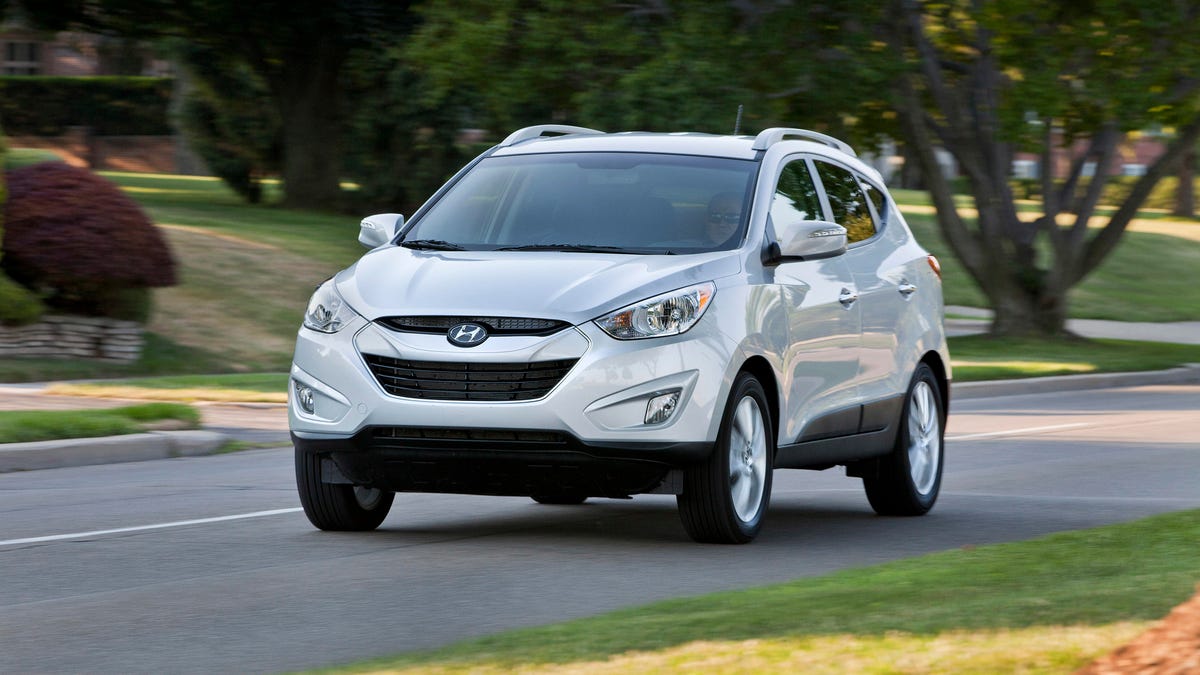Hyundai, Kia recall 500,000 cars over fire concerns
There are two separate causes at play, both of which can result in the same outcome.

Hyundai and Kia have made news in recent months for recalls related to possible engine fires, and now, the sister automakers have two new recalls to announce along those lines.
Hyundai and Kia have issued recalls covering approximately 500,000 vehicles. There are two separate causes at play here, and while they both might result in engine fires, the defects in question are different. Let's take a look at each:
Recall the first: Catalytic converter overheating
The first recall affects only Kia vehicles. In this instance, Kia issued a recall for approximately 379,000 examples of the 2012-2016 Soul, all of which have 1.6-liter direct-injection gasoline engines.
The problem in this case stems from the catalytic converter, which uses precious metals to help reduce pollutants in exhaust emissions. Excessive exhaust temperatures may damage the converter, allowing particles to enter the combustion chamber and create an abnormal combustion scenario. If this abnormal combustion continues, it might damage the piston's connecting rods, causing them to fracture the engine block and cause an oil leak, which could turn into an engine fire.
Kia technicians will inspect each recalled vehicle at the dealership. To prevent future converter overheating, technicians will upgrade the related ECU software. If the catalytic converter shows signs of damage, it'll be replaced. If the engine itself shows signs of damage, it, too, might get replaced. Kia will also reimburse owners who had these remedies performed out-of-pocket prior to the recall announcement.
You can't observe your catalytic converter breaking apart, so when it happens, you may not know until your connecting rods decide to make a break for it.
Recall the second: Oil pan leaks
Hyundai and Kia are both involved in this recall. This one affects approximately 32,000 examples of the 2011-2012 Kia Sportage and approximately 120,000 examples of the 2011-2013 Hyundai Tucson . The recall affects models equipped with a 2.4-liter gas I4.
This time, the oil pan is to blame. According to recall documents, the oil pans in question might have received insufficient sealing during assembly, allowing them to leak oil. Unsuspecting owners may drive these leaky cars for extended periods of time without monitoring oil levels, and low oil levels can cause engine damage. Oil leaks can also increase the risk of an engine fire. Furthermore, if the engine conks out at speed, it could increase the risk of a crash.
The automakers remedied the problem on the assembly line, but they're still working on fixes for affected vehicles currently on the road. It'll likely involve oil pan replacement or resealing. Hyundai and Kia will reimburse owners who've paid for a remedy already, prior to the recall being announced.
Oil leaks are pretty easy to spot, especially on taller vehicles.
Prior recalls and other engine fire concerns
The oil-pan recall actually came from an investigation into other Hyundai recalls. While NHTSA was investigating Hyundai's "timeliness and scope" related to engine recalls for the Sonata and Santa Fe , it told Hyundai that it found a number of engine-stall and fire claims for Hyundai's Tucson. Hyundai did some digging of its own, and it found a trend that eventually turned into this recall.
Hyundai and Kia have been in the news for similar problems for months now. Last October, the Center for Auto Safety called out both automakers for not going far enough in remedying vehicle-fire concerns in some 3 million vehicles. It caught the attention of the US Senate, which invited the automakers to testify in front of a Senate committee, but that meeting was put on hold.
In early January, Hyundai and Kia recalled an additional 168,000 vehicles over engine fire concerns. The vehicles in this recall had been previously recalled for problems that resulted in engine replacements, but that replacement may have caused part damage that could lead to another engine fire.

